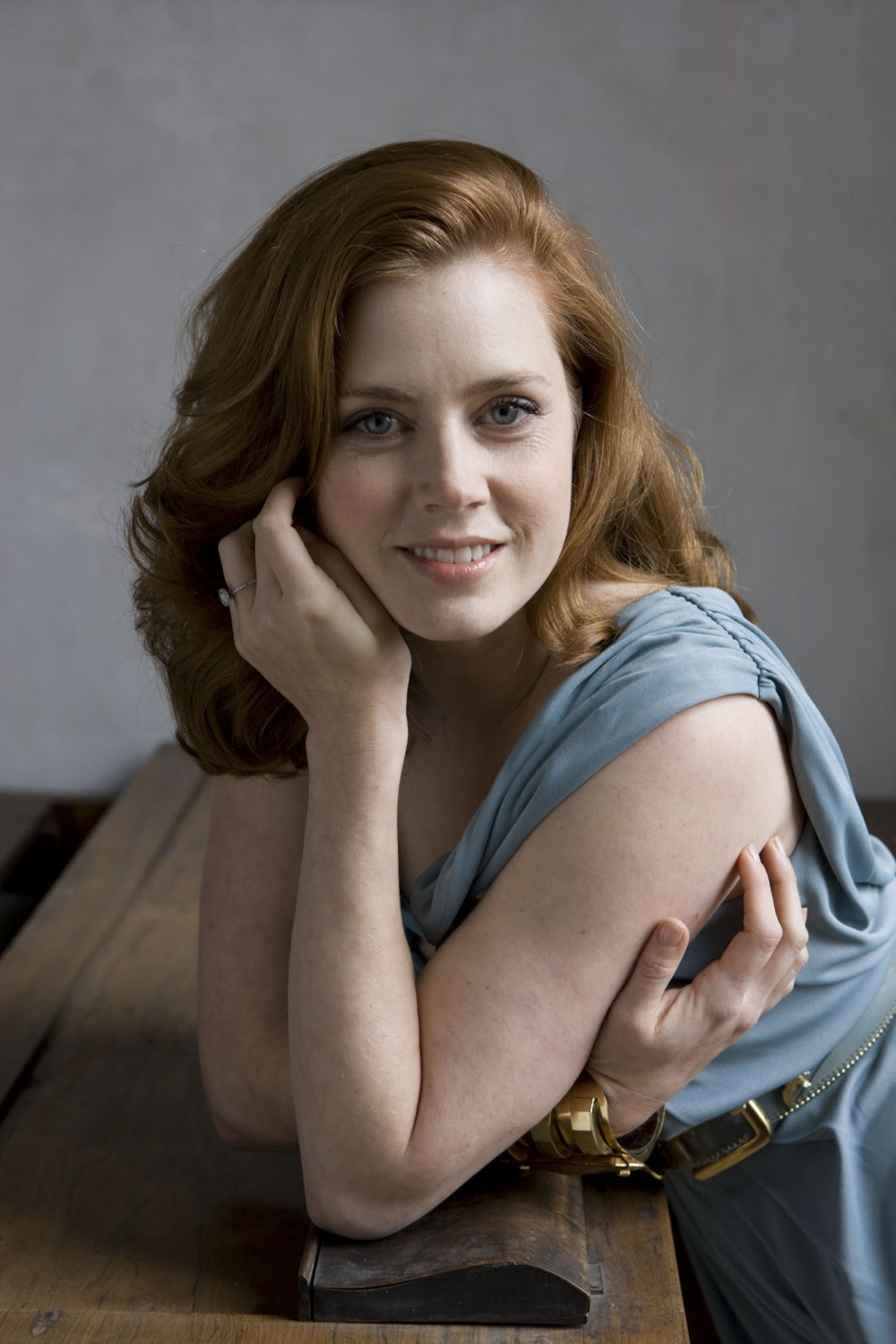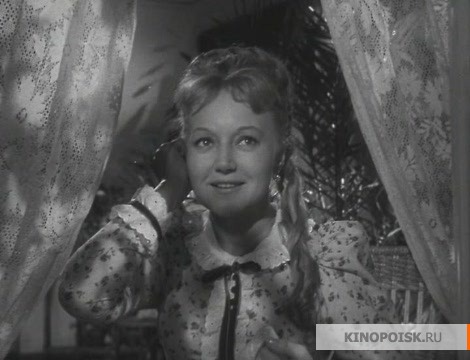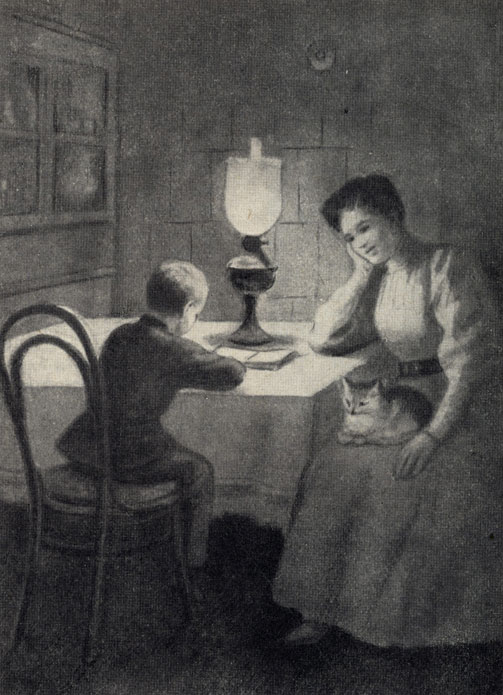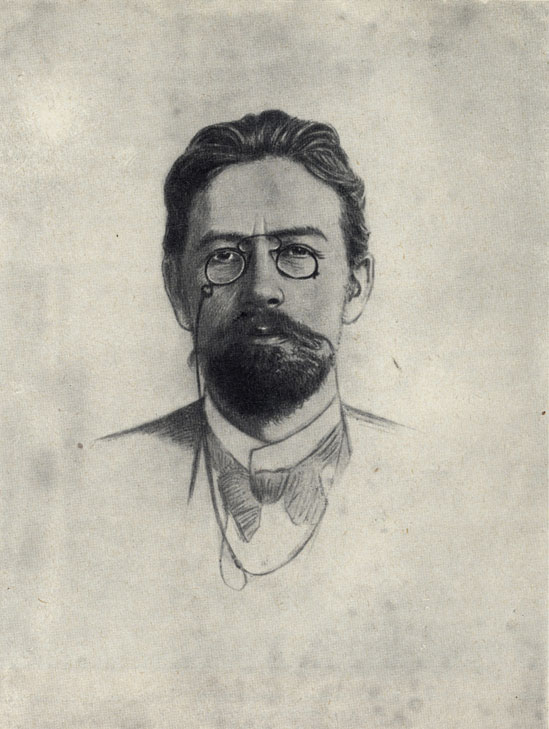середа, 7 травня 2014 р.
Stylistic analysis of the story “The Darling” by Anton Chekhov
Anton
Chekhov is one of Russia's many important
literary figures, and one of the greatest playwrights of all times. He won the
Pushkin Prize and is known for his short stories and plays, often combining
elements of both comedy and tragedy. While works reflect the frequently
turbulent developments specific to his homeland, their lasting appeal lies in
Chekhov's talent for exploring universally human situations with grace and
dexterity.
Anton
Chekhov was born on January 29, 1860, in Taganrog, Russia. Before becoming one
of the most notable Russian short story writers, Chekhov was a trained medical
doctor in Moscow. He first wrote for humor
journals, authoring "low-brow" shorts, which prepared him for the
plays and short stories that made him famous in the late 19th century,
including The Proposal, The Wedding and
The Anniversary.
Chekhov
himself was the grandson of a serf, and the overturning of this older social
order plays a central role in many of his writings. When his father's business
failed, the family moved to Moscow, a Russian center for intellectuals. There,
Chekhov grew intellectually, although he developed in two different directions.
On the one hand, at the age of twenty he attended medical school at the
University of Moscow, preparing himself for his lifelong profession as a
physician. While at medical school, Chekhov also began writing to help support
his family. He worked as a freelance writer for newspapers and magazines; the
respect he gained from these often humorous pieces encouraged Chekhov to begin
writing serious short stories. Tolstoy, an older Russian contemporary of
Chekhov's, was a great influence on the young writer and medical student. Chekhov was quoted as saying that
medicine was his lawful wife and literature was his mistress, and he
remained devoted to his two professions throughout his life.
Chekhov
graduated from medical school in 1884, and while he began his life as a
physician, the period after his graduation also marks the moment when Chekhov
began writing seriously. During the late eighties, Chekhov wrote both short
stories, such as The Bear in 1888,
and The Wedding in 1889, and plays,
which include Ivanov in 1887 and The Wood Demon in 1889.
Unfortunately,
Chekhov suffered from health problems, and he spent much of the early nineties
with his family or traveling to gentler climates. During this time of travel,
Chekhov was able to pursue his interest in all things French, particularly
French farce, a genre which marks his own theatrical comedy.
In
1896, Chekhov entered the period of creativity for which he is best known. At
the turn of the century, he authored four plays, commentaries on Russian
society, which have gained him lasting acclaim: The Sea Gull in 1896, Uncle
Vanya (a derivative of 1889's The Wood Demon) in 1896, The Three Sisters in 1901, and The Cherry Orchard, his last great play, in 1904. Chekhov spent
these years between Moscow and Crimea, dividing his time between his work and
nursing his failing health. Olga Knipper performed in each of these four plays;
in 1901, she and Chekhov married.
Whereas
most fiction, past and present, focuses on a character’s climactic change, Chekhov’s stories are
frequently less about change than they are about the failure to change.
And even when his characters do change, their changes fail to last,
merely complicate the existing conflict, or create a new and often greater
conflict. His endings tend to emphasize the continuation of conflict, not
its conclusion. Chekhov commented on this fact in one of his letters,
saying, “When I am finished with my
characters, I like to return them to life.” A great number of Chekhov’s
stories end by saying implicitly what one story says explicitly: “And after that life went on as before.”
Instead of
giving us a pat account of how everything will turn out, he typically returns
the character, and us, to the uncertainty of life, leaving us wondering what
will happen next.
Chekhov sometimes omits climaxes in order to make the reader have an
epiphany his protagonist fails to have.
A character may reach a “dead end,” in short, but the reader continues the
journey in the character’s stead. Behind this kind of ending, which we
find most frequently in Chekhov’s later work, is the belief that an epiphany is
more powerful if the reader experiences it rather than merely witnesses it.
Anton
Chekhov created a paradigmatic form for writing fiction. By mimicking reality
he produced a representational art through his stories. The revelations in
Chekhov’s fictional characters transport the reader into all too familiar
lives. Chekhov portrays such an honest
reality through his characters and dialogue that he leaves his readers with
perhaps a revelation within themselves.
Chekhov advanced the form of
character creation from a romantic focus to what is now the modern character.
Charles E. May, a modern critic of Chekhov, explains “the short story is too short to allow for the character to be created
by the kind of dense and social interaction through duration typical of the
novel”. Chekhov understood this, and therefore avoids depicting the minds
of his characters, instead letting the characters’ mood or feeling communicate
their inner state.
Chekhov’s method of writing is similar to good
acting. When an actor is on stage, and wants to be viewed as more than a
spectacle- as a medium, which will evoke emotion from the audience- they must
authentically feel how their role is intended to feel. Chekhov can evoke emotions
through his stories because he writes honestly. Just as we sympathize with an
actor who is truly sad on stage, we sympathize with a character of Chekhov’s
who is truly sad in text.
Anton Chekhov's short story "The Darling" considered one of his finest was first
published in 1899. Leo Tolstoy, his contemporary and one of the greatest
Russian writers of the nineteenth century, was quick to celebrate Chekhov's
achievement in "The Darling," comparing it to "a piece of lace" like those woven by "old
maids," who "put their whole life, all their dreams of happiness,
into their lace."
The title
of the story is suggestive, because from the opening lines we get acquainted
with the main character – Olenka, and her, so to say, nickname “the darling”.
Later on Chekhov reveals why Olenka is called by people in such way. And we are
not misled – the word “darling” describes Olenka in the best way.
In the story several main themes can be found. In my opinion the basic is woman’s role in society. Chekhov raised
a very important question of that time – woman is not just a puppet-doll. She
is not a continuation of a man, but personality, with her own unique thoughts
and opinion. The author never talks about such things directly in the story. I
believe that “the Darling” has 2 levels of meaning. On the surface we see just
a lovely woman who obeys her parents and husbands (there are 2 of them). But second
glance reveals irony that penetrates
the whole story. Chekhov says not a single bad word about Olenka. But one shouldn’t take everything at face value. The author is not charmed by his
heroine but disappointed. I believe he wanted to say that women shouldn’t be
just “darlings” but intellectuals.
The events
in the story take place in the provincial town in the Russian Empire. Most of
them are happened in the Olenka’s house: “…in which she had lived from her birth upwards, and which was left her
in her father's will, was at the extreme end of the town, not far from the
Tivoli.” The
setting of the events in the story extract is realistic. It is
presented in a general way.
From
the point of view of presentation
the text is the 3rd person
narrative, that makes the story more objective. Author stands like an
independent observer. He doesn’t give any judgements or comments. However, he
presents information that is hidden from other people’s eye. So we can say that
the type of narration is limited omniscient.
This limitation is confirmed by the following line “…when it was transferred to a distant place -- to
Siberia, it may be”, it appears that the author isn’t
knowledgeable of everything and also by the fact that he is aware just of
Olga’s thoughts and feelings and knows little about the spirituality of other
characters.
I
believe that “Darling” has a closed plot
structure, because its plot
consists of exposition, rising action, climax, falling action and resolution.
All the actions are presented in chronological
order. The story includes internal
conflict, as Olga fights with own position, set of values and views on the
world.
So, exposition includes information about
the main protagonist – Olga and her first husband, Kukin. Initiating incident is Olga’s love to Kukin and their marriage. The rising action includes Kukin’s
death, Olga’s love to Pustovalov, their marriage, and his death. Climax of the story consists of
Olenka’s devotion to Volodya, veterinary surgeon, and Olenka’s words “But, Voloditchka, what am I to talk about?”
that for the first time confirms Olga’s awareness of her failure as an
independent being. Falling action is
Olenka’s loneliness, return of Volodya with his wife and son, Sasha, back to
the town, and Sasha’s upbringing by Olga. Resolution
includes Olga’s measureless love and devotion to Sashenka and his annoyance
by “auntie”, as he calls Olga.
The types of speech employed by the author of the analysed story are narration, elements of
description and dialogue.
The main character of the story is Olga or Olenka, or “the darling”. We
follow her life from youth till oldness. She is characterized both – directly and
indirectly. So, Olga “was a gentle, soft-hearted, compassionate girl,
with mild, tender eyes and very good health. At the sight of her full rosy
cheeks, her soft white neck with a little dark mole on it, and the kind, nave
smile, which came into her face when she listened to anything pleasant”. But with time she “got thinner and plainer, and when people
met her in the street they did not look at her as they used to, and did not
smile to her”. And by the end of the story the author mentions again that “Olenka herself had grown plain and elderly”
also at this time in Sasha’s eyes she was “a tall, stout woman”, of whom he was ashamed in the extreme.
Also, we get to know
that Olga never has her personal opinion. The main need of her life was to love
and to dissolve in someone. Because of this she left herself, her personality. I
doubt that behind this blind love hides great courage and devotion. Her love is
selfish – she loves for her own sake, she loves because she is afraid to be
left alone with no opinion and no ideas. But unquestioningly obedience turns
her in annoying woman. Her character is described with a slight, sophisticated
irony. She always puts into her head beliefs and thoughts of the men. Sometimes
she contradicts herself – while living with Kukin “the theatre was the chief and most important thing in her life”, all
her talks were about it, but with the second husband another thoughts appeared
in her head: "Vassitchka and I have
no time to go to theatres …We have no time for nonsense. What's the use of
these theatres?"
Besides,
the author shows that nothing worries her heart for a long time – after death
of her first husband and her marriage for the second time little time had passed.
The same was with the death of her next husband, and when her third affair,
Vladimir Platonitch, left the town. Again and again she finds someone else to
devote herself to and thinks that it is the one and the only person for the
rest of her life. She could be named a “frivolous” woman, but she was so
“darling”. Moreover, she was described by the author with simple, inoffensive
phrases “Vanitchka and I”, “Vassitchka
and I” – these several words, if interpreted in the right way, include
everything that was mentioned above about Olga.
Other characters of
the story just contribute to the complete disclosure of Olga’s personality.
They are Kukin, who “was the manager of an open-air theatre
called the Tivoli”. Vassily Andreitch Pustovalov “an
excellent man whom one could thoroughly depend upon”. Vladimir Platonitch,
the veterinary surgeon, the only man who resists Olga’s imitation of himself.
And Sasha, a young boy, whom Olga loves to despair, and whom she irritates the
most.
“Darling” is full of
different stylistic devices that
contribute to the better interpretation of the text.
Phonetic.
The
story includes several cases of onomatopoeia,
which make the text sound more natural and true-to-life: “ha, ha, ha”; “boom, boom, boom”; “mrr, mrr, mrr”.
Graphic.
In the telegram that informs about
Kukin’s death we find 2 cases of graphon:
“fufuneral”, “immate”, which suggest
that the person who wrote this message was uneducated. Also the usage of
graphon under such tragic circumstances creates the atmosphere of dark irony.
As later on we get to know that Olenka needs little time to recover from
suffering and pity for her dead husband.
Lexical.
To make the
description of the characters and setting more vivid and emotive author uses
the following epithets: “soft-hearted girl, with mild, tender eyes”;
“thin tenor”; “sweet, nave, radiant smile”; “heart-broken Olenka”; “sedately
dignified voice”.
Also the following metaphors and personification make the
story more aesthetic: “rainclouds were
gathering from the east, and bringing from time to time a breath of
moisture in the air”; “came a sudden ominous knock at the gate”; “her silk
dress rustled agreeably”; “her soul, as before, was empty and dreary and full
of bitterness”; “warm her old blood”; “would come another knock”.
The usage of similes tends to make the
characterization of events and personages more imaginative: “someone was hammering on the gate as though
on a barrel”; “it was as harsh and as bitter as wormwood in the mouth”; “she
was brisk and alert as though she had waked from a long sleep”; “Olenka would
say, looking at him as though he were about to set off on a long journey”.
To reveal Olga’s personality is used
several cases of hyperbole. This
usage shows the character’s tendency to exaggerate everything:
¨
“she threw herself on her bed and sobbed so
loudly that it could be heard next door, and in the street”;
¨
“she loved him so much that she lay awake all
night in a perfect fever”;
¨
“for this little boy with the dimple in his
cheek and the big school cap, she would have given her whole life, she would
have given it with joy and tears of tenderness”;
¨
“she was the most unhappy woman in the world”.
Syntactical.
Also the text is full
of ellipsis that is used to imitate
the real, colloquial speech: "Again!"
he observed despairingly. "It's going to rain again!”; "Yes, not half bad"; "You
darling!"; “ And the freight”;
"You pretty pet! ... my precious! ... Such a fair little thing, and
so clever."
Moreover,
to achieve emphasis in the text is used inversion:
“late
in the evening, came a sudden ominous knock at the gate”; “with her was her
little Sasha…”; “never had her soul surrendered to any feeling” and detachment: “Send me to prison! -- to Siberia! -- the scaffold”.
Also antithesis is used to create a great
contrast between physical appearance of Olga and her first husband: “Olenka grew stouter, and was always
beaming with satisfaction, while Kukin grew thinner and yellower”
The following rhetorical questions are found in the
meditations of the main character: “Why did I ever meet you! Why did I know you and love you!”; "How can I live without you, in
wretchedness and misery!”; “Why not
have my house? Why shouldn't that suit you?”; “Why? Who can tell why?” together with emphatic constructions: "You're such a sweet pet!"; “How
she does take on!" they contribute to depiction of Olga’s character –
show her hot-bloodedness and great emotionality.
Also the story is very rich for repetitions and parallelism. These stylistic devices intensify the text, add
expressiveness, imitate emotional excited speech
and also act as a powerful means of foregrounding.
·
“It's enough to make one cry. One works and does one's
utmost, one wears oneself out”.
·
“She took part in the rehearsals, she
corrected the actors, she kept an eye on the behaviour of the musicians,
and when there was an unfavourable notice in the local paper, she shed
tears, and then went to the editor's office to set things right”.
·
“Usually he sat in the office till
dinner-time, then he went out on business, while Olenka took his place, and sat
in the office till evening, making up accounts and booking orders”.
·
“And the freight!" she would add,
covering her cheeks with her hands in horror. "The freight!"
·
“At night when she was asleep she dreamed of perfect mountains of
planks and boards, and long strings of wagons, carting timber somewhere far away. She dreamed that a whole regiment of six-inch
beams forty feet high, standing on end, was marching upon the timber-yard”.
·
“He used to talk to her and play cards
with her, and this entertained her in her husband's
absence”.
·
“And she always expressed herself with the
same sedateness and dignity, the same reasonableness”.
·
“She looked into her yard without interest,
thought of nothing, wished for nothing”
·
“One sees a bottle, for instance, or the
rain, or a peasant driving in his cart, but what the bottle is for, or
the rain, or the peasant, and what is the meaning of it, one can't say, and
could not even for a thousand roubles. When she had Kukin, or Pustovalov, or the veterinary
surgeon, Olenka could explain everything, and give her opinion about anything
you like”.
·
“She wanted a love that would absorb her
whole being, her whole soul and reason -- that would give her ideas and
an object in life, and would warm her old blood”.
·
“And so it was, day after day and year after year, and no joy, and no opinions”.
·
“Why not have my house? Why shouldn't
that suit you? Why, my goodness, I wouldn't take any rent!"
·
“Of her former attachments not one had been so
deep; never had her soul surrendered to any feeling so spontaneously, so
disinterestedly, and so joyously as now that her maternal instincts
were aroused”.
·
“Her head, her hands, and her feet
would turn chill”.
Together with
repetitions the author uses polysyndenton
that helps to create rhythmical and dynamic atmosphere:
·
“And let
it for short terms to a Little Russian company, or to a conjurer, or
to a local dramatic society.
·
“And when Pustovalov came back, she told
him in a low voice about the veterinary surgeon and his unhappy home
life, and both sighed and shook their heads and talked
about the boy, who, no doubt, missed his father, and by some strange
connection of ideas, they went up to the holy ikons, bowed to the ground before
them and prayed that God would give them children”.
·
“When he had visitors, men serving in his
regiment, and she poured out tea or served the supper, she would begin talking of
the cattle plague, of the foot and
mouth disease, and of the municipal
slaughterhouses”.
·
“He would get up, dress and say his
prayers, and then sit down to breakfast, drink three glasses of tea, and
eat two large cracknels and a half a buttered roll.
Summing up the analysis of the given story
one should say that A. Chekhov brilliantly uses different tropes, among them –
rhetorical questions, parallelism, polysyndenton, hyperbole which help indirectly
reveal the personality of the main character. Also I want to add that the
talent of A. Chekhov as a writer can’t be overvalued.
The Darling
"And what was worst of all, she had no opinions of any sort. She saw the objects about her and understood
what she saw, but could not form any
opinion about them, and did not know what to
talk about. And how awful it is not to have any opinions!"
Anton Chekhov
Reading
Anton Chekhov's stories, one feels oneself in a
melancholy
day of late autumn, when the air is transparent and the outline of naked trees,
narrow houses, greyish people, is sharp.
Everything is strange, lonely, motionless,
helpless… - B.W.
Huebsch
Among the most pervasive elements in the writing of Chekhov is irony, especially the irony of unfulfillment. ... One form this irony takes is the realization that achievement, arriving at one's goal, seldom brings satisfaction. ... Irony is also experienced in the failure to realize hopes, in the
pursuit of what proves to be a will-o'-the-wisp, and in lack of awareness of what the present offers. - Ruth Davies
Підписатися на:
Коментарі (Atom)



